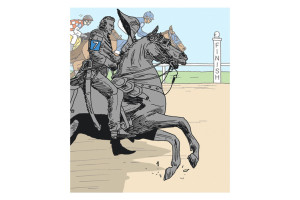More than 100 million Americans are expected to bet in some way on this year’s NCAA men’s college basketball tournament–proving that the “madness” in March Madness is no mere expression. In 2013, according to Pregame.com, more than $12 billion was bet on the tournament—$2 billion more than on the Super Bowl. Between the slacking off, the drinking, the overeating and the surreptitious score-watching at work, one recent study predicts that March Madness will cost the U.S. $134 million in lost productivity and wages—all this despite the fact that in most U.S. jurisdictions, NCAA tournament pools remain totally illegal.
The U.S. has always had an uneasy relationship with gambling. Internet gambling remained illegal until this year—though that didn’t prevent Americans from spending more than $3 billion gambling online last year, according to the American Gaming Association. This great dichotomy in attitudes has been part of the national landscape since the early settlements in the 17th century. In Puritan New England, gambling wasn’t just a sin but a crime, whereas in the South, gambling was a gentlemen’s sport so long as it didn’t involve cockfighting. In the 1770s, the 13 colonies adopted a more robust attitude: Every one of them resorted to lottery schemes to raise revenue. Harvard, Yale, Columbia and Princeton all benefited from lottery money. Even the Revolutionary War was funded by lottery.






